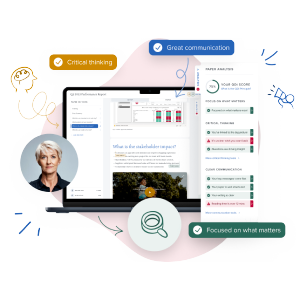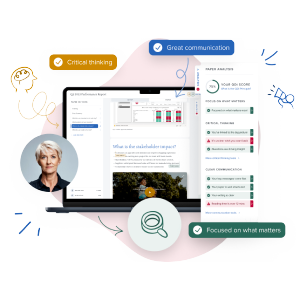The views and opinions expressed in this article are those of the author.
It’s in uncertain times that acts of compassion really shine. But does what benefit us as people also benefit us as businesspeople? A look at History hints at it being the case, and that competitive advantages follow organisations that choose benevolence.
Compassion, the Foundation of Greatness
One of the brightest periods of intellectualism, the Age of Enlightenment, dominated European culture for two centuries. Whilst we’re more critical of the Lumières today, many of the ideas that emerged then still form the foundations of modern society — from scientific knowledge to constitutional government.
One such idea was the abolition of the slave trade. In the late 18th century, French philosophers stoked the fires of abolitionism across Europe, opposing slavery on both moral and economic grounds. France eventually abolished the practice in 1848, and humanitarian thinking’s new grip on intellectual circles pushed Britain to pass abolition acts of its own. Vast sums of money were borrowed by the government to appease slave owners (£20m, equivalent to £23bn today) and put an end to the horrors of slavery without tearing apart the fabric of society.
There are several hypotheses as to how the pursuit of scientific knowledge morphed into the first steps on the long path to equality. One of the most popular is the widening of the empathy circle: that is, the group of individuals you feel empathy for and are inclined to treat in egalitarian ways. Over millenia, this circle has expanded from our immediate family, to inhabitants of geographic regions of increasing size (from local clusters to foreign nations), across genders and ethnicities, and, eventually, other species.
This progress has primarily been driven by innovation. Stephen Pinker, Harvard professor of cognitive psychology, proposes that the Enlightenment’s printing press-fuelled explosion of literacy was a main factor of this increase in empathy. Enabling people to consider perspectives outside of their own viewpoints allowed the concepts of equality and compassion to grow. And, once the spark of progress had been lit, technology acted as a multiplier. Or, as women’s suffrage activist Susan B. Anthony wrote in 1896:
“[The bicycle] has done more to emancipate women than any one thing in the world. I rejoice every time I see a woman ride by on a bike. It gives her a feeling of self-reliance and independence the moment she takes her seat; and away she goes, the picture of untrammelled womanhood.”
In many ways, technology continues to expand the circle of empathy today. The world entered 2020 with 59% percent of its population connected to the internet, connecting and exposing us to others more than we ever were.
Compassion Pays in Kind, and Perhaps More
For corporations or nations, compassion’s benefits are far greater than “simply” being on the right side of History. Cash will always be King, but we may well be entering a time where public “goodwill” becomes Queen.
China, now past its infection peak, has begun transporting medical equipment to foreign nations en masse. Whatever the ulterior motives, Chinese ventilators will save thousands of lives, and this compassionate gesture will be remembered when future political frictions arise.
In business too, compassion can deliver more than the immediate benefit. In the late 19th and early 20th century, the Cadbury brothers and William Lever established entire towns to house their workforces. At a similar time, across the Atlantic, Henry Ford was paying his employees $5 an hour, far in excess of his rivals, generating immense goodwill with his workers and the public. It’s little surprise that Cadburys, Unilever, and Ford are still with us today.
Recent examples also abound:
- Tech entrepreneur Elon Musk has been hitting the headlines by allocating resources towards relief effort, from donating ventilators to unlocking extra range in Tesla cars for those fleeing hurricanes. For a business heavily reliant on capital inflows, any such reputational boost is an advantage.
- Supermarket giant Morrison’s reassessment of its payment terms with small suppliers will inevitably create special business relationships in which closer cooperation can thrive.
- And the thousands of online resources being shared for free are a testament of the power of compassionate acts of business. From Ju-Jitsu lessons to music production software, organisations are seizing the opportunity to assist their consumers, and reap the rewards of moral capital.
It can be easy to view it all with cynicism — and it would be foolish to consider that organisations are acting solely in the name of selflessness. But, during a crisis, does that really matter? Social anthropologist superstar Marcel Mauss dedicated his life to the mechanisms behind gift-giving. He ultimately concluded that the gift, whilst often given with the best intentions, cannot be given selflessly. Instead, the gift creates a social bond of reciprocity, where the debt is repaid in cycles ad perpetuam. Scholars who came after Mauss offered examples of selfless gift-giving, but these always operated under specific assumptions, such as the ascetic practices of Jainism. For the general populace, compassion begets compassion.
As we march through the coming weeks, the news will likely get worse before it gets better. In these times, lessons from the past should provide us with hope: the world is connected; technology has widened the circle of empathy exponentially; and, when we finally emerge, the social bonds that have been forged during this crisis will strengthen humanity in tackling even greater challenges.
Alexander is Client Executive at Board Intelligence. He holds a Master’s degree in Bioarchaeology and Forensic Anthropology from UCL, can locate clandestine graves with drones, and has been a bartender across the world.





